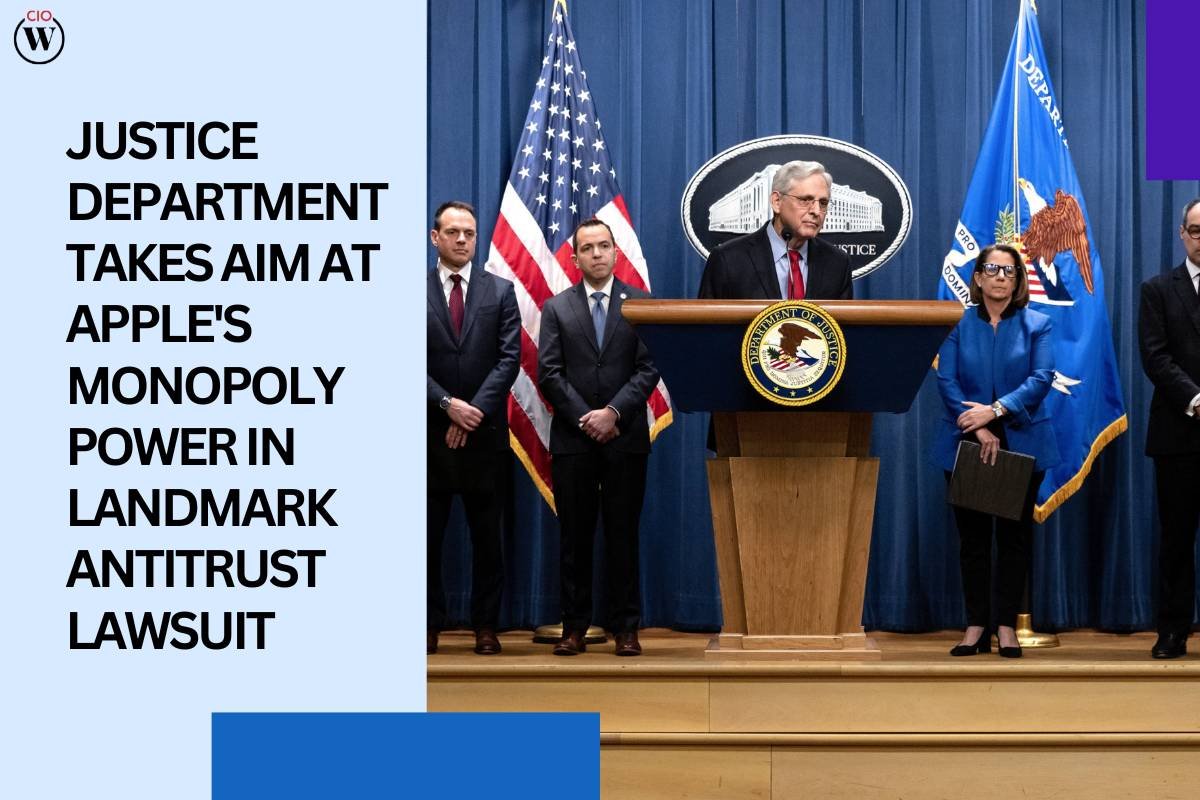Source – Daily Sabah
Apple Antitrust Lawsuit Over Alleged Monopoly Abuse
At Vox’s 2022 Code Conference, Tim Cook’s quip to buy an iPhone for better video quality became more than just a witty response; it became a focal point in the Justice Department’s Apple Antitrust Lawsuit. The Biden administration, alongside 16 states, alleges that Apple is exploiting its dominance in the smartphone market to maintain an unfair advantage. The lawsuit targets Apple’s curated app store and restrictive customer experience, accusing the tech giant of excluding competitors to monopolize the market.
In response, Apple vehemently disagreed with the allegations, vowing to vigorously defend its principles. However, if the lawsuit succeeds, it could compel Apple to relax its stringent control over the iPhone ecosystem, potentially opening avenues for alternative app stores and interconnectivity with non-Apple devices.
Key Allegations Against Apple
The Justice Department’s complaint outlines five primary ways in which Apple purportedly abuses its dominant position to the detriment of consumers. Firstly, Apple’s iMessage service, praised for its seamless integration among iPhone users, allegedly discriminates against Android users by delivering inferior messaging experiences. The Apple Antitrust Lawsuit argues that such practices mislead consumers into perceiving rival smartphones as inferior due to intentional limitations imposed by Apple.
Secondly, Apple’s exclusive control over Apple Pay on iPhones is under scrutiny. While enhancing payment security, Apple’s refusal to permit third-party apps access to its payment technology allegedly stifles innovation and limits consumer choice. The Justice Department contends that allowing cross-platform digital wallets could offer users greater flexibility and security.
Impact on Competition and Innovation
Furthermore, the Apple Antitrust Lawsuit challenges Apple’s strategy regarding its Apple Watch and third-party app stores. Apple Watch’s compatibility exclusively with iPhones is portrayed as a deliberate tactic to lock consumers into Apple’s ecosystem, hindering competition from other smartphone manufacturers. Similarly, Apple’s tight grip on the App Store, banning third-party alternatives and imposing strict guidelines, is accused of stifling competition and innovation. The Justice Department argues that such restrictions prevent innovative services, like cloud-based gaming app stores, from reaching iPhone users, ultimately limiting consumer choice and industry growth.
Lastly, Apple’s requirement for app developers to code specifically for its operating system is deemed anticompetitive. By constraining developers from creating “super apps” that run universally across different platforms, Apple allegedly impedes innovation and perpetuates its dominance.
As the legal battle unfolds, the outcome could have far-reaching implications for the tech industry’s landscape. If successful, the lawsuit may compel Apple to reassess its practices, potentially fostering a more competitive and innovative environment for consumers and developers alike.








